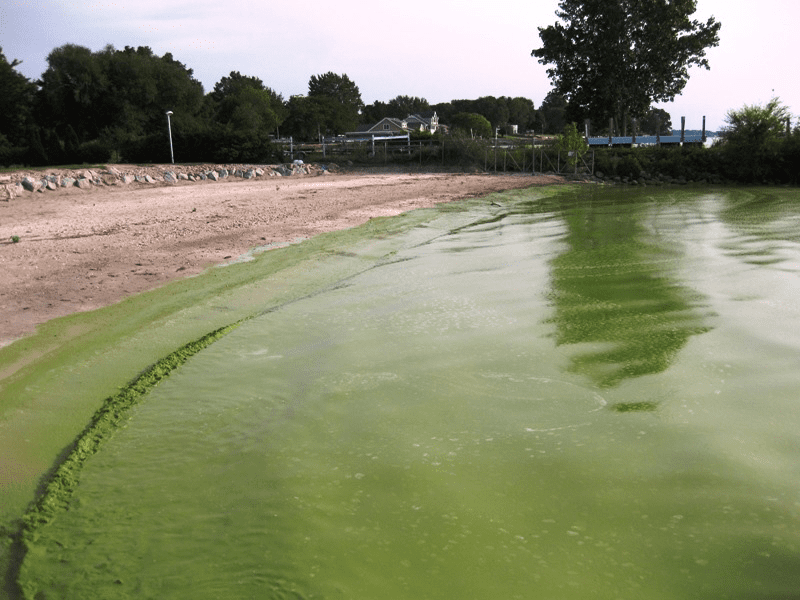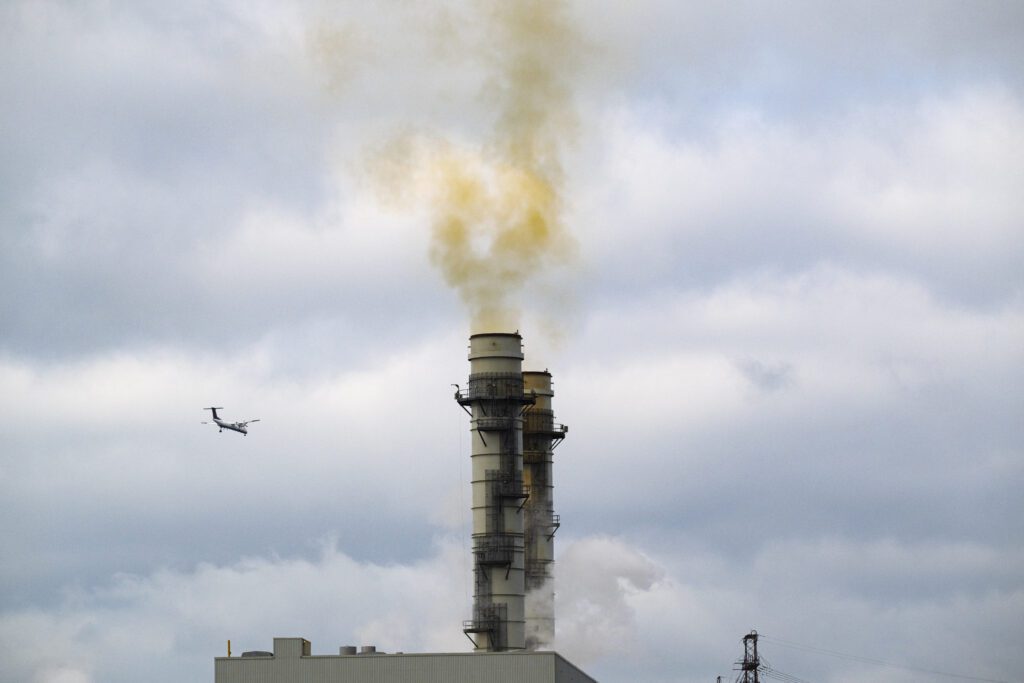What does algae have to do with climate change? And nuclear power, you ask? Good questions!

Here’s the scoop: Algae has become the new normal in Lake Erie, unfortunately. And this year, due to the extreme heat, it’s an issue in Lake Ontario too.
There’s a toxic bloom of Blue Green Algae at the mouth of Mimico Creek in the Humber Bay. And there’s a recurring bloom in Ajax (at the outlet from the sewage treatment plant) that has grown too – and which apparently mucks with the Pickering Nuclear Generating Station from time to time.
This is one of those times. 4 nuclear reactors were taken offline at the Pickering Generating Station due to “significant amounts of algae stirred up by [Sunday]’s storm clogged cooling water intakes.”
Ontario Power Generation (OPG) assures us the reactors were taken offline safely. The issue is that the power that is typically generated from these reactors is being replaced by natural gas – a fossil fuel, the burning of which contributes to climate change.
Thus, the title of the blog: Algae, caused by climate change, is causing climate change.
We’re not huge fans of nuclear power because it’s expensive, it’s inflexible, it’s dangerous, and there’s the issue of what to do with the waste. But, by many accounts, nuclear is low-carbon.
Unless, of course, nuclear can’t operate because of climate change, and it needs to be replaced with natural gas fired power (which leads to more climate change, etc).
Sure, Ontario can and should do more to stop algae blooms in Lake Ontario and Lake Erie. But this points to another vulnerability of nuclear power – outside forces can make it unsafe for operation – and certainly should provoke more serious thought about whether Ontario should be so reliant on nuclear power.

From our perspective, Ontario should be less reliant on nuclear power, and continue building more wind and solar power. Renewable energy is taking the world by storm as prices continue to plummet and the world gets serious about fighting climate change. Wind is the cheapest source of new power generation in Canada – and way cheaper than nuclear is today. And while the prices for wind and solar will continue to fall, prices for nuclear are projected to rise. Nuclear power is also the largest share of the “global adjustment,” that mysterious item on electricity bills in Ontario. And despite all the claims to the opposite, renewable energy represents a small share of the total costs of electricity.
And yet, Ontario’s new government has canceled nearly 760 wind and solar projects (which is not going to have much, if any, impact on bills), vowed to keep the Pickering Nuclear Generating Station operating until 2024, and will be proceeding with the costly refurbishments of the Bruce and Darlington Nuclear plants.
It’s too bad. Ontario needs more green energy and less green algae (that mucks with nuclear power, among other things), and should be rethinking our reliance on nuclear power, instead of doubling down.







